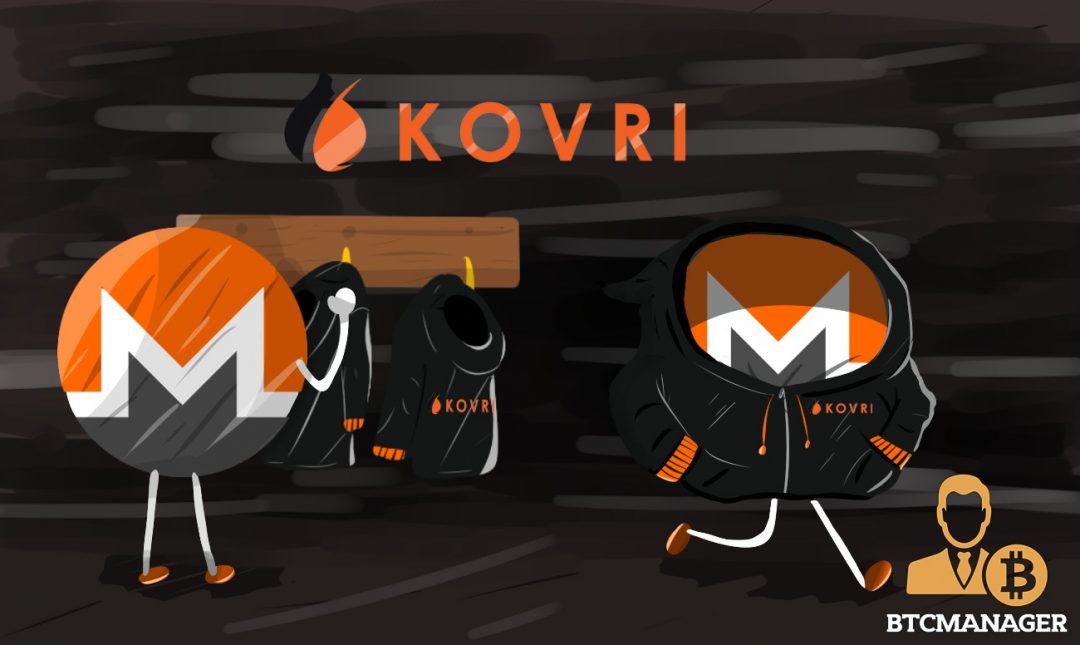What is Kovri and Why is it Important for Monero?

In a recent OpenHours episode released August 17, several Monero contributors joined the show to talk about the Kovri project. The project aims to further improve the privacy of the Monero network by making it virtually impossible to deduct any information about transactions. Also, Kovri may potentially become the go-to method to hide IP addresses.
Kovri’s Resonance with Monero
Kovri is a C++ implementation of an I2P router. In short, a general purpose anonymizing overlay network, similar to Tor. A typical I2P router is written in Java, whereas Kovri is written in the C++ language to ensure compatibility with the privacy-centric cryptocurrency, monero (XMR). At present, 48 contributors are working on the project to bring it to alpha stage.
What is Kovri and how did it come about? Riccardo Spagni, the lead maintainer of the Monero project, explained that “because Monero is pro-privacy as a project, we started to adopt other projects, that are not only beneficial to the monero ecosystem but beneficial to privacy lovers everywhere, and that’s where Kovri came about.”
The beginning of Kovri mirrors that of Monero. Both were forked away from open-source projects due to a lack of belief in the direction of the original development teams. In Monero’s case, it was BitMonero. With Kovri, it was i2pd.
In early 2015, the initial author of i2pd, a C++ implementation of I2P, made themselves sole contributor once one developer pushed a commit through on GitHub. Offending other developers, this action resulted in the inertia of such a C++ project. Then in Autumn 2015, Anonimal, who currently leads the development of Kovri, tried to resuscitate the project and offered an olive branch to the active i2pd developers.
While the first author of i2pd did not respond, the individual instead began to work on GitHub again, outside of the community driven branch. An act of defiance on the one hand and a warning sign for developers who wanted to pursue such a project.
To mitigate any damage to the prospects of a C++ implementation of I2P, Anonimal led a series of meetings which formed the basis for the Kovri project, starting from November 2015. This group then forked away from i2pd due to the stranglehold placed on its development.
Anonimal explained Kovri’s purpose on the OpenHours episode, his first public discussion of the project, “Essentially, we will be able to anonymize monero transactions even more than what monero is capable of doing right now, technically speaking, at the network layer.”
In Anonimal’s proposal from late 2016, he explained his reasoning for Kovri as an alternative to Tor:
“While I love Tor tremendously and will defend her with tooth and nail, at this time of writing there are two issues that concern me the most with regard to the Tor project:
First, with new management, the current state of the project is in questionable flux: core volunteers who have been with the project since its very early years are uprooting and leaving, there are publicly known conflicts within the organization, there are many rumors (both founded and unfounded) about U.S. government infiltration,
Secondly, Tor’s Achilles’s heel: authorities, consensus, and flow-based onion-routing (as current implemented in Tor): they are not truly decentralized.”
But doesn’t Monero obfuscate transaction destinations and transaction amounts? Yes, but when you make a transaction, you tell the network that you want it to be included in the next block. Your IP address, along with other metadata, is leaked. But your IP address is not recorded forever in the blockchain.
Malicious actors could try to figure out IP addresses if they actively monitor the network and explains why Kovri is so important. Monero contributor SamsungGalaxyPlayer (SGP) stated, “[Kovri] will make it very, very hard, hopefully impossible, to monitor this information.”
Spagni added that, although possible, such as attack would be difficult to pull off, “your IP address is not embedded in the transaction. They need to be running nodes of their own, and then observing which node first broadcasts a transaction, so it’s a hard attack to pull off, it has happened with bitcoin before, and maybe it could even be happening with monero, we wouldn’t know…”
“Monero Will Never Be Done… Kovri Important for Privacy and Decentralization”
One of the more interesting questions pitched on the episode was as follows; let’s assume Kovri is integrated and there are mobile wallets for XMR, what are the largest, long-term challenges facing Monero?
SGP responded that the biggest two challenges are for monero to stay decentralized and to keep improving the privacy. “We don’t have any systems right now which are perfectly private. We need to keep getting closer and closer to that.” He went on to say that, “We’re kind of at a point where Monero is reasonably private, now we need to make it reasonably efficient.”
Because of the obfuscation qualities, Monero’s transactions are larger than bitcoin transactions since more data is stored on the blockchain. Trimming down these transaction sizes has been a key priority for the team. There are two fruitful avenues in this regard, as highlighted by the most recent notes from the Monero dev meeting. RingCT 2.0 and researcher Tim Ruffing’s sublinear ring signatures + CT, which has the added advantage of not requiring a trusted setup.
“Monero will never be done, so there will always be more work. To make it more decentralized and improve the privacy, I suppose Kovri is an important aspect for both of those things.” – SGP
As well as improving the decentralization and privacy of Monero, Kovri will also help to boost adoption and the value of XMR. People will begin to trust the cryptocurrency more and more once they become confident that every transaction keeps them anonymous. After the beta release of Kovri, it will be on by default, meaning every user will benefit from an extra layer of I2P anonymity.
Ideological Community is Driving Development
Other talking points on the OpenHours episode were Spagni’s views on blockchain consensus and the progress being made on the development side, “what’s more interesting than the price (of XMR) is the constant growth on the development side.”
“We’ve had new contributors flock in on the regular, some of them stay for a short while, but some of them stay for a long time, and they’re working on something without getting paid. There are some contributors who have raised funds through our crowdfunding system, but the vast majority work on Monero because they enjoy it, and find it challenging and interesting, not because they think they’re going to get rich.” – Riccardo Spagni
Like Brandon Goodell, the Ph.D. mathematician who was on-boarded to Monero to augment the cryptocurrency, Anonimal was also funded by the community through the internal crowdfunding system for the project. He even hinted on the show that the two would work together on Kovri in the near future.
With more than 7,000 XMR funded for Anonimal, and as one of the veteran Monero contributors, he can work full-time on the project. Spagni noted that two developers and one researcher have been crowdfunded in such a way. He commented, “It’s nice because it just goes to prove that even though there are a lot of scams in the space… You can still have a project that is primarily ideologically driven and has a community that are willing to fund development and fund developers no problem.”
Kovri is Important for Privacy, not Just Monero
Kovri is not an exclusive project to Monero. Taking aim at being an agnostic system, Kovri will be useful for anyone who may require anonymity, such as whistleblowers and journalists.
As Anonimal explained, “Long term, I would like to reduce what we need and improve the implementation of what we have and also to make Kovri an anonymity system agnostic application in terms of API usage. We could have Monero using the API, but Kovri could evolve into the next generation of anonymity systems… We want something that is useful to everyone, and that will also be a long-term anonymity solution for Monero.”
While XMR were used to fund Anonimal, his work will have positive spillover effects, benefitting people outside of the Monero ecosystem.
While Kovri has no release date, it is an exciting project that is highly anticipated by many in the cryptocurrency community. Not just valuable for Monero, Kovri is important for privacy in general too, as it will serve a double function; a standalone I2P router and an easy to use interface with the Monero GUI.
As Anonimal dived into the cryptography behind the project on the show, he expressed his belief that Kovri is the most exciting project a cryptographer could possibly work on:
“[Kovri] is like a crypto smorgasbord … so it’s actually quite fun, this is the project to get into because we have so much stuff to work with and some really cool ideas that have been developed over a decade now…”















